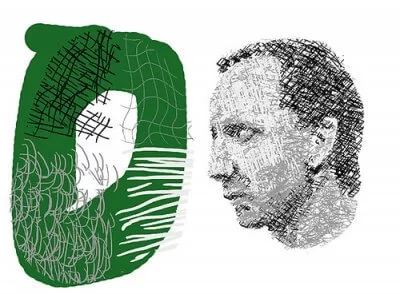“Does Hypnosis Work?” Myths and Facts About Hypnotherapy

By: figlioDiOrfeo♥
by Andrea M. Darcy
Curious about hypnotherapy? And wondering if it could work for you? But heard so many strange rumours, you’ve been asking yourself, “But does hypnosis work?”.
Myths about hypnotherapy
Of all modern therapeutic interventions, hypnotherapy and the trance state it uses, ‘hypnosis’, are perhaps surrounded by the most confusion and incorrect information.
Learn the myths about hypnotherapy, the facts about hypnosis, and if it really can help you.
1. Hypnotherapy is just entertainment.
At one point, yes, ‘hypnotists’ were a a trendy entertainment act as schools and events.
But a stage hypnotist and a hypnotherapist are not the same thing. A stage hypnotist knows how to convince someone to go along with them, and how to relax someone into a trance. They are unregulated, meaning they don’t have to adhere to any ethical standards.
A hypnotherapist, on the other hand, or ‘clinical hypnotherapist’, uses hypnosis with therapy. Their goal is to help you relax enough to access your unconscious mind, so you can from there create positive life changes. They take an extensive course, and can register with a regulatory board if they have the right certification and experience. A registered hypnotherapist adheres to a strict code of standards and ethics.
2. Hypnotherapy is an alternative treatment, not a real intervention.
Hypnotherapy is interested in the science of the brain. How do we hold onto memories, how can we change outdated limiting beliefs? It works to access and change unconscious thoughts in a planned, careful way. Like all new therapies, it was at first seen as strange and new, but it’s now an accepted intervention.
In fact these days you can find registered psychotherapists who have taken additional training in hypnotherapy to help clients with such things as stress, anxiety, and trauma.
[Have so much stress and anxiety and really need to talk to someone who understands? Book online therapist now and get the support you deserve.]
3. You lose all control when you are under hypnosis.

By: Mattia Belletti
The idea that the hypnotherapist controls the client is not actually true. You don’t lose consciousness when you are under a hypnotic trance.
“Hypnosis” merely involves relaxing your conscious mind. You know what is happening, and at any time can choose to stop the process.
And you can’t be hypnotised if you don’t want to be. Hypnotherapy is a self-chosen journey away from the present moment. If you don’t want to do it, it won’t work.
In fact we have all already been in and hypnotic trance. It’s the same feeling you get when you binge watch TV, or go fishing. And it’s that light, beyond thought feeling we all experience just before we drift off to sleep, or when we are half awake in the morning.
4. A hypnotherapist can make you do things against your will.
Again, you are actually aware of what is happening even if you are under ‘trance’. If a therapist asks you to do something you don’t want to, you can say no.
This fear again comes from stage hypnosis, where people end up doing things for the audience like barking like a dog or acting like a chicken. Note that with such events there is an element of ‘group mind’ at play. People chose to go on stage and participate, and are as much under the spell of their desire to please the hypnotist and audience than the actual hypnosis itself.
If hypnotherapists were so powerful they could make someone do everything they wanted? They’d all be millionaire. In one single session they could convince someone to never overeat or overspend or smoke again.
Unfortunately hypnotherapy instead tends to be a process of several sessions, working through unconscious blocks and choosing to allow new beliefs.
5. You won’t remember what happened.

By: Carlos Ebert
Let’s go back to that example of binge watching TV. You are into series two, and then someone calls you, and you snap out of you ‘tv trance’. Even though you were zoned out watching the telly, you would remember eating snacks, getting up and going to the loo, drinking water.
Hypnosis is the same. You do remember what you experienced, even if it feels a bit distant and dreamy.
In fact you don’t have to have your eyes closed to be hypnotised. It’s been proven that you can enter a hypnotic state with your eyes open.
6. You will be brainwashed.
A professional hypnotherapist has no interest in brainwashing you. They are there to help.
As for the concept of ‘brainwashing’ itself, we are essentially brainwashed from birth. Our parents brainwash us with their beliefs and lifestyle choices, advertisements brainwash us to want certain things, peer pressure brainwashes us to live life a certain way.
If anything, hypnotherapy could be seen as choosing to ‘brainwash’ yourself with things you’ve actually chosen for yourself and really want.
7. Hypnotherapy is the ‘miracle cure’ you’ve been waiting for.
Unfortunately not. Like any therapeutic intervention, hypnotherapy requires commitment. It can take several sessions to start seeing results. And sometimes results last a certain amount of time and you need to go back for another round of sessions. It depends on you, your personal history, and the issues you’d like to work on.
Ready to give hypnotherapy a try? Find a hypnotherapist in the UK now on our booking site.
 Andrea M. Darcy is a health and wellbeing expert, trained in person-centred counselling and coaching. She often writes about trauma, relationships, and ADHD, and advises people on how to plan their therapy journey. Find her on Instagram @am_darcy
Andrea M. Darcy is a health and wellbeing expert, trained in person-centred counselling and coaching. She often writes about trauma, relationships, and ADHD, and advises people on how to plan their therapy journey. Find her on Instagram @am_darcy





